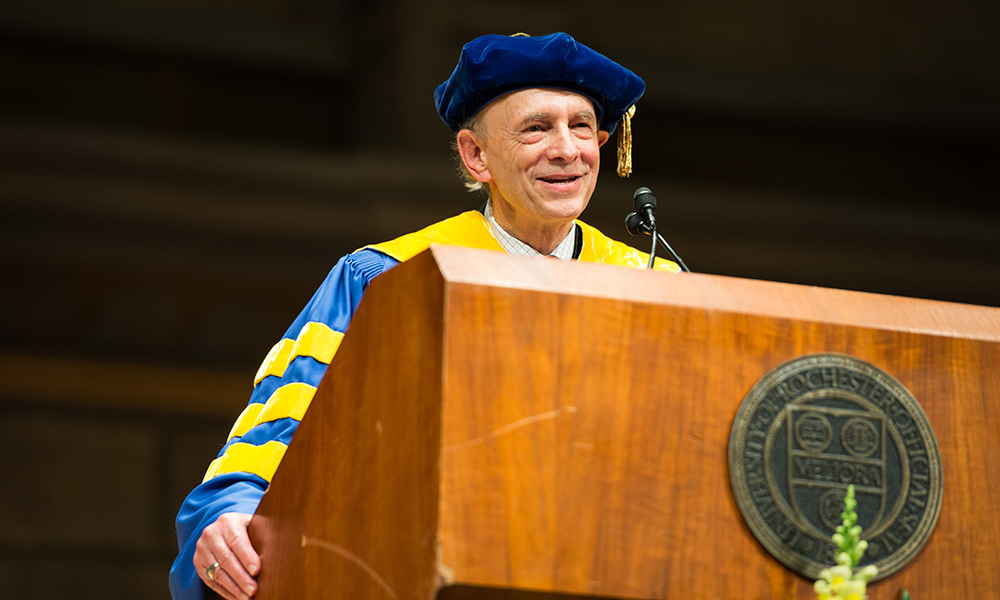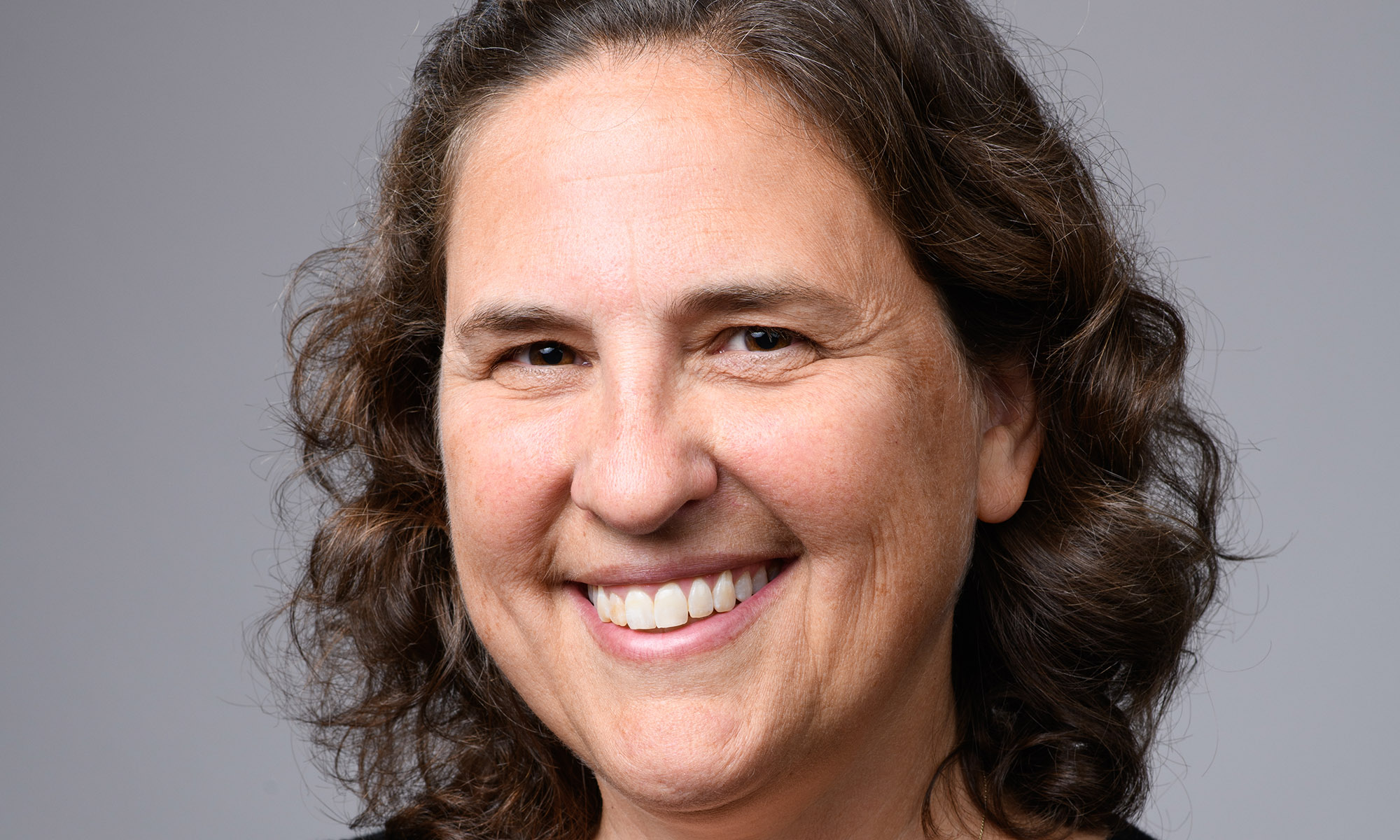Rochester alumni and faculty have to date received a total of 13 Nobel Prizes, across a range of categories that includes physics, medicine or physiology, and economics.
The 2020 Nobel Prize in Physiology or Medicine was awarded to National Institutes of Health scientist Harvey Alter for work that has led to diagnostic tests and treatments for a life-threatening form of hepatitis. He shared the prize with British scientist Michael Houghton and Rockefeller University scientist Charles Rice.
The Nobel committee cited the scientists “for the discovery of Hepatitis C virus.” “Thanks to their discovery, highly sensitive blood tests for the virus are now available and these have essentially eliminated post-transfusion hepatitis in many parts of the world, greatly improving global health,” the committee noted.
Alter, who holds BA and MD degrees from Rochester, is the 13th Nobel laureate with ties to the University.
Here’s a look at all of Rochester’s Nobel Prize recipients:
2020 Prize in Physiology or Medicine
Harvey Alter ’56, ’60M (MD), discovery of Hepatitis C virus
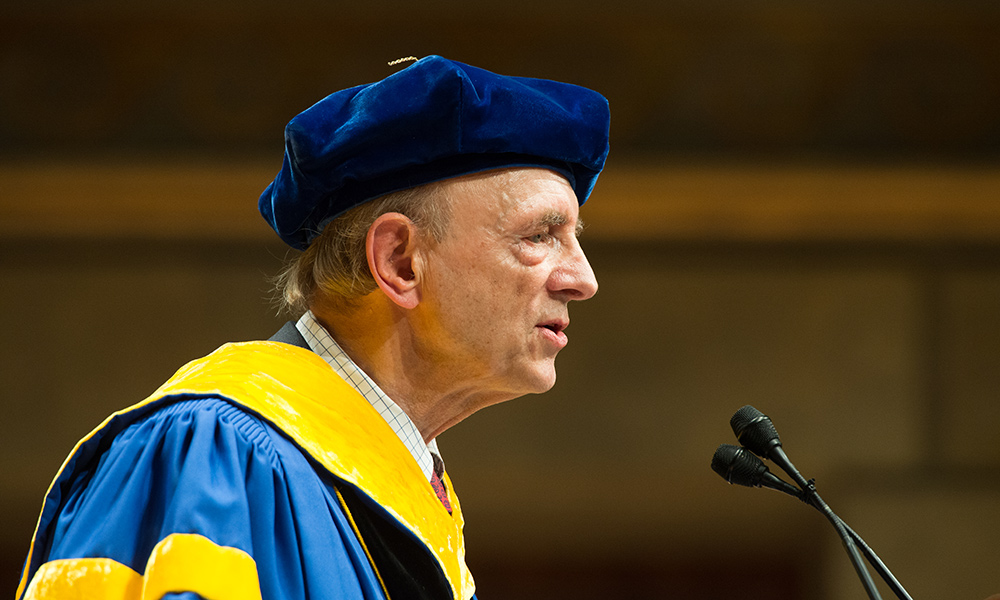 2020 Nobel Prize laureate Harvey Alter ’56, ’60M (MD) received the University’s highest alumni award in 2015 (University photo / J. Adam Fenster)
2020 Nobel Prize laureate Harvey Alter ’56, ’60M (MD) received the University’s highest alumni award in 2015 (University photo / J. Adam Fenster)
2018 Prize in Physics
Donna Strickland ’89 (PhD) and Gérard Mourou, developers of “chirped-pulse amplification” in lasers
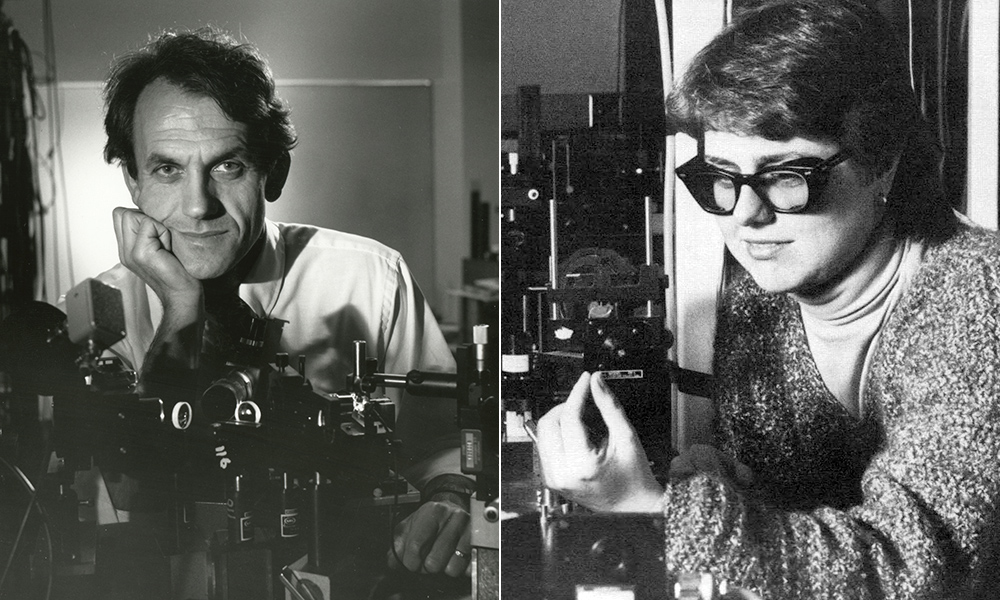 Gérard Mourou, left, photographed in Rochester in 1987, and Donna Strickland ’89 (PhD), seen aligning an optical fiber in her lab in Rochester in 1985. The pair shared half of the 2018 Nobel Prize in Physics “for their method of generating high-intensity, ultra-short optical pulses.” (University photos)
Gérard Mourou, left, photographed in Rochester in 1987, and Donna Strickland ’89 (PhD), seen aligning an optical fiber in her lab in Rochester in 1985. The pair shared half of the 2018 Nobel Prize in Physics “for their method of generating high-intensity, ultra-short optical pulses.” (University photos)
2018 Prize in Economic Sciences
Paul Romer, developer of the endogenous growth theory
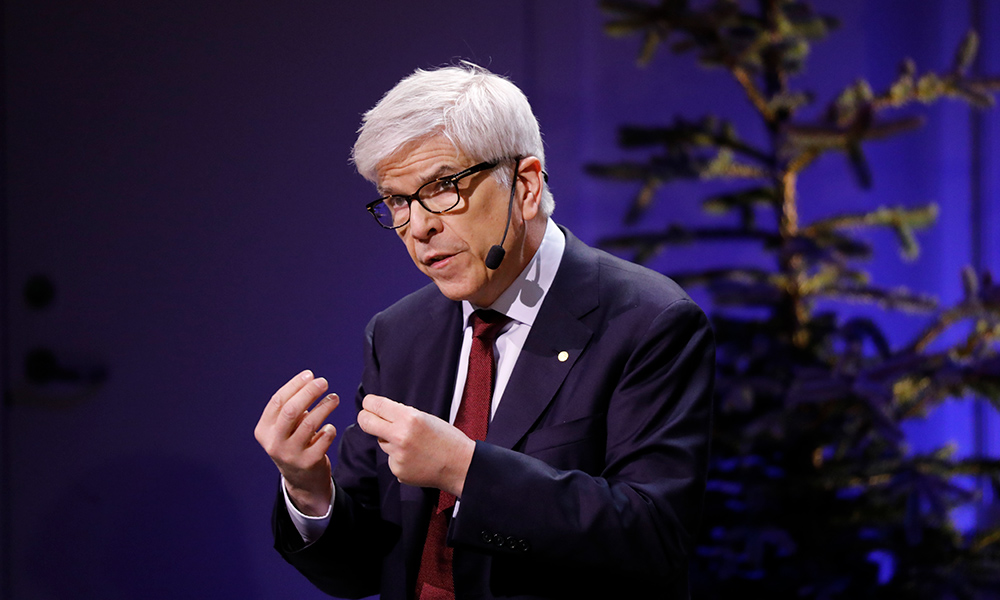 Paul Romer, a former assistant professor of economics at Rochester, was recognized as a pioneer of the endogenous growth theory, which integrates technological innovations into long-run macroeconomic analysis. (TT News Agency via AP photos)
Paul Romer, a former assistant professor of economics at Rochester, was recognized as a pioneer of the endogenous growth theory, which integrates technological innovations into long-run macroeconomic analysis. (TT News Agency via AP photos)
2017 Prize in Economic Sciences
Richard Thaler ’74 (PhD), one of the founders of behavioral economics.
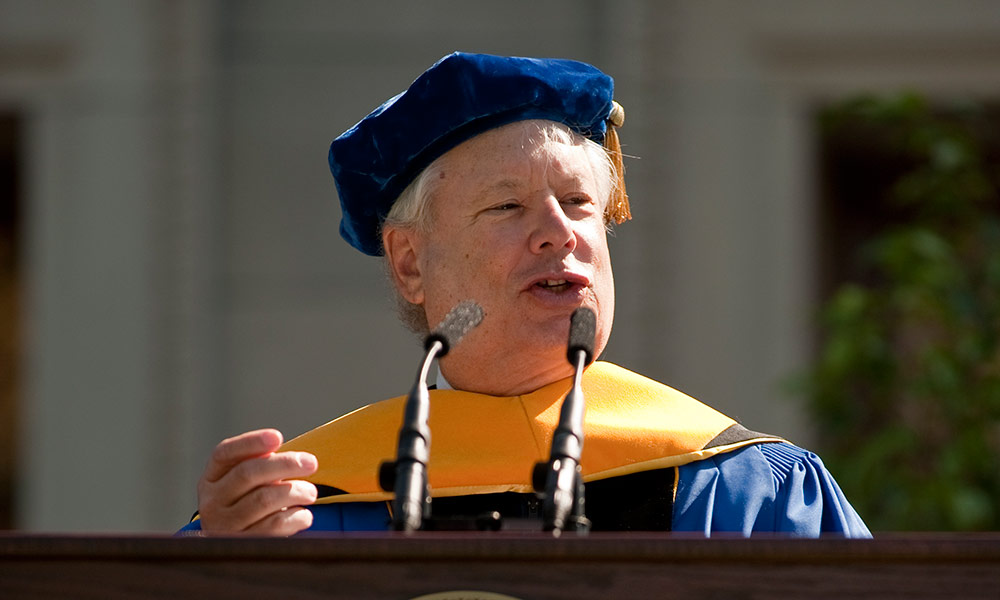 Richard Thaler ’74 (PhD), a professor of economics at the University of Chicago and one of the founders of the discipline of behavioral economics, receives an honorary doctor of science degree from the University of Rochester in 2010. (University photo / J. Adam Fenster)
Richard Thaler ’74 (PhD), a professor of economics at the University of Chicago and one of the founders of the discipline of behavioral economics, receives an honorary doctor of science degree from the University of Rochester in 2010. (University photo / J. Adam Fenster)
2002 Nobel Prize in Physics
Masatoshi Koshiba ’55 (PhD), a physicist who led work to detect the subatomic particles known as neutrinos.
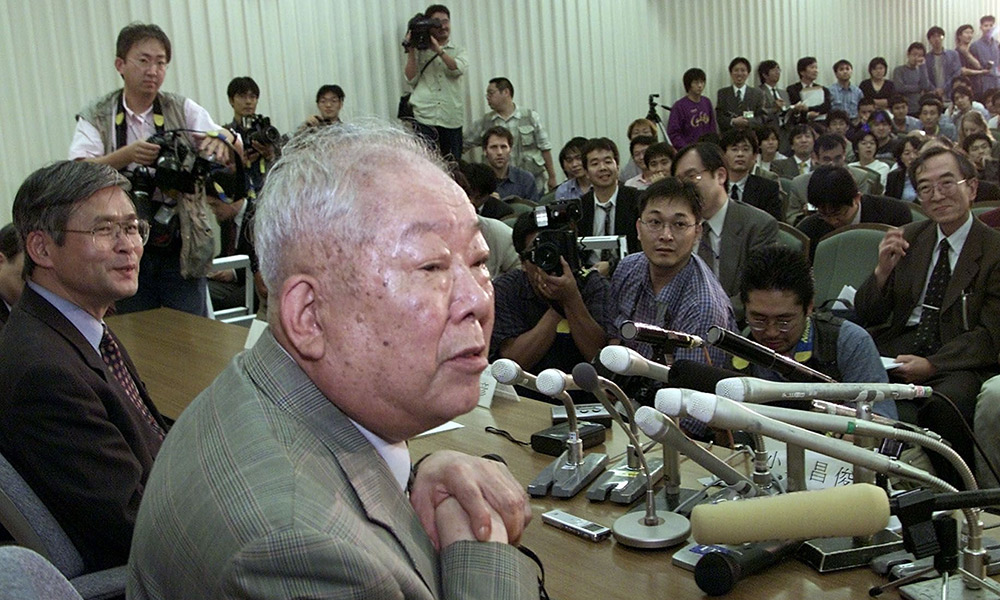 Masatoshi Koshiba, a professor emeritus at the University of Tokyo, attends a press conference at in Tokyo after receiving the news Tuesday that he and two American researchers won the Nobel Prize in Physics for “pioneering contributions to astrophysics.” (AP Photo)
Masatoshi Koshiba, a professor emeritus at the University of Tokyo, attends a press conference at in Tokyo after receiving the news Tuesday that he and two American researchers won the Nobel Prize in Physics for “pioneering contributions to astrophysics.” (AP Photo)
1997 Nobel Prize in Physics
Physicist Steven Chu ’70, former Secretary of Energy who developed methods to cool and trap atoms with laser light.
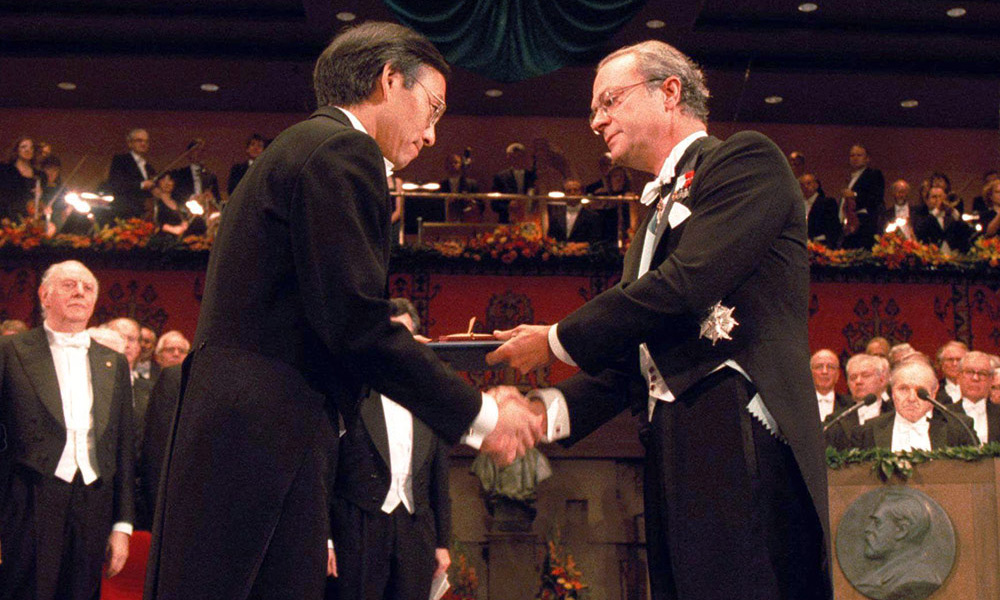 Steven Chu, then at Stanford University, receives the Nobel Prize in Physics from Swedish King Carl XVI Gustaf in Stockholm in 1997. (AP Photo)
Steven Chu, then at Stanford University, receives the Nobel Prize in Physics from Swedish King Carl XVI Gustaf in Stockholm in 1997. (AP Photo)
1993 Nobel Prize in Economic Sciences
Robert Fogel, an economist who pioneered quantitative analyses of social history.
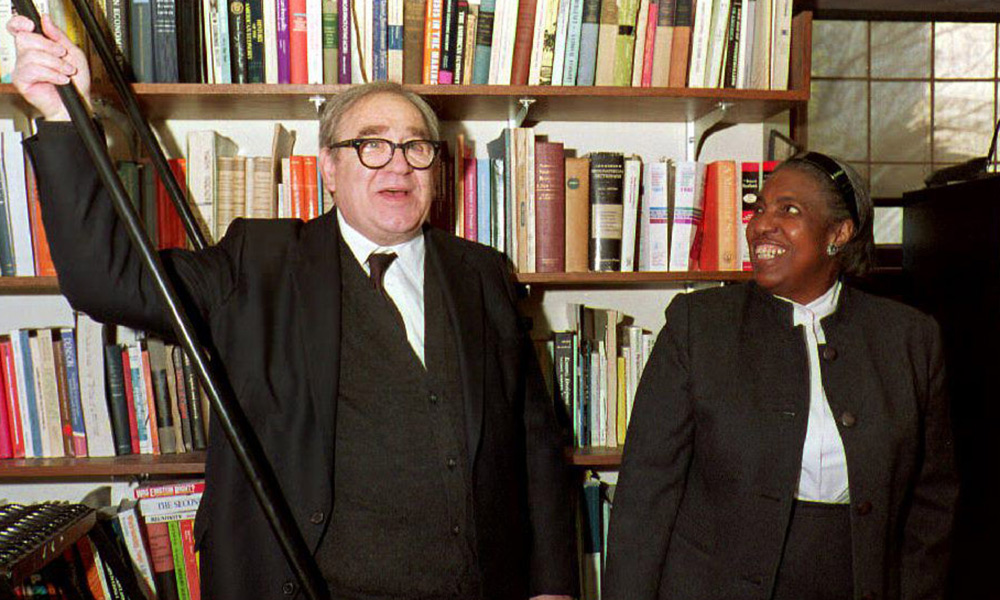 Robert Fogel, a member of the Rochester economics faculty in the 1960s and 1970s, speaks to reporters in his University of Chicago office in 1993, as wife, Enid, looks on after learning that he had shared the 1993 Nobel Prize in Economic Sciences. (Eugene Garcia/AFP/Getty Images)
Robert Fogel, a member of the Rochester economics faculty in the 1960s and 1970s, speaks to reporters in his University of Chicago office in 1993, as wife, Enid, looks on after learning that he had shared the 1993 Nobel Prize in Economic Sciences. (Eugene Garcia/AFP/Getty Images)
1976 Nobel Prize in Physiology or Medicine
Carleton Gajdusek ’43, who is credited with discovering the infectious disease mechanism of prions.
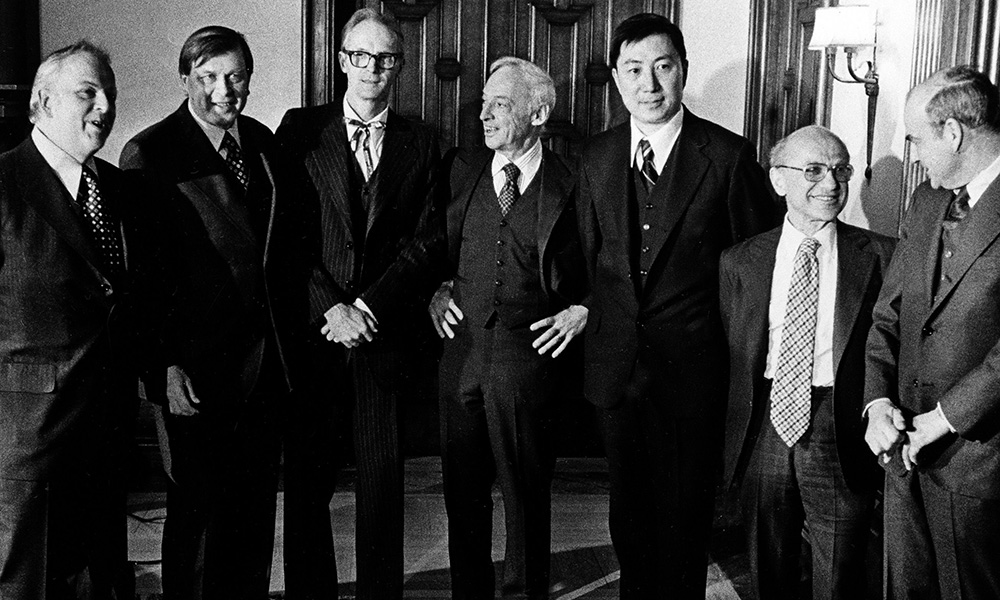 The Nobel Prize winners for 1976 gather at the United States ambassador’s residence in Stockholm in 1976. From left: Burton Richter, corecipient in physics; Carleton Gajdusek, corecipient in medicine; William Lipscomb, chemistry; Saul Bellow, literature; Samuel Ting, corecipient in physics; Milton Friedman, economics; and Baruch Blumberg, corecipient in medicine. (AP Photo)
The Nobel Prize winners for 1976 gather at the United States ambassador’s residence in Stockholm in 1976. From left: Burton Richter, corecipient in physics; Carleton Gajdusek, corecipient in medicine; William Lipscomb, chemistry; Saul Bellow, literature; Samuel Ting, corecipient in physics; Milton Friedman, economics; and Baruch Blumberg, corecipient in medicine. (AP Photo)
1959 Nobel Prize in Physiology or Medicine
Arthur Kornberg ’41M (MD), who first discovered a way to synthesize DNA.
 Arthur Kornberg receives his Nobel Prize for medicine from King Gustav Adolf of Sweden in 1959 for his pioneering research of a basic mechanism of heredity. (AP Photo)
Arthur Kornberg receives his Nobel Prize for medicine from King Gustav Adolf of Sweden in 1959 for his pioneering research of a basic mechanism of heredity. (AP Photo)
1955 Nobel Prize in Chemistry
Vincent du Vigneaud ’27 (PhD), a biochemist, for research on sulfur-containing compounds
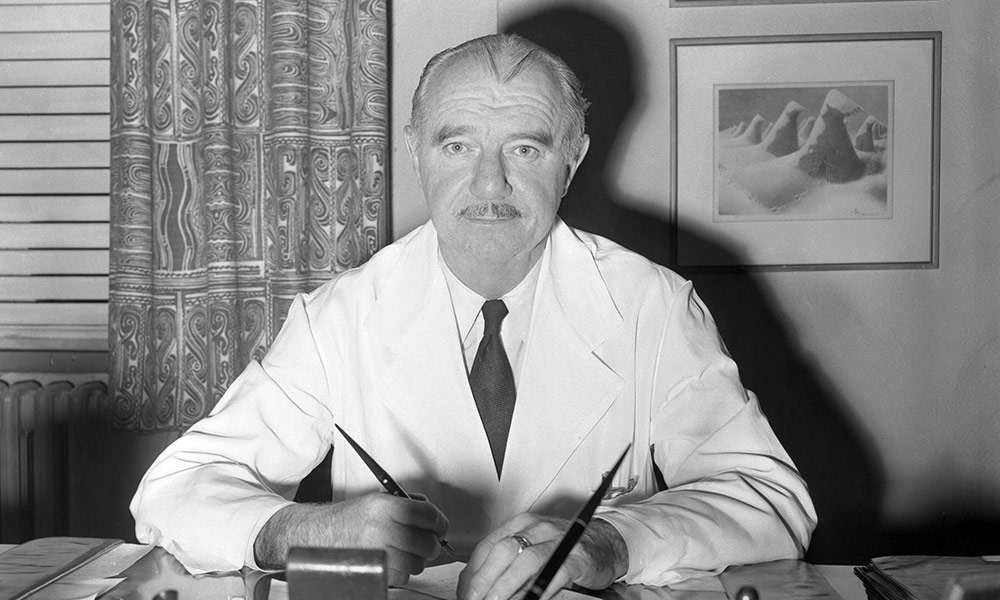 Vincent du Vigneaud, who won the Nobel Prize in chemistry, went on to a faculty position at Cornell University Medical School. (Getty Images)
Vincent du Vigneaud, who won the Nobel Prize in chemistry, went on to a faculty position at Cornell University Medical School. (Getty Images)
1943 Nobel Prize in Physiology or Medicine
Biochemist Henrik Dam for his discovery of vitamin K.
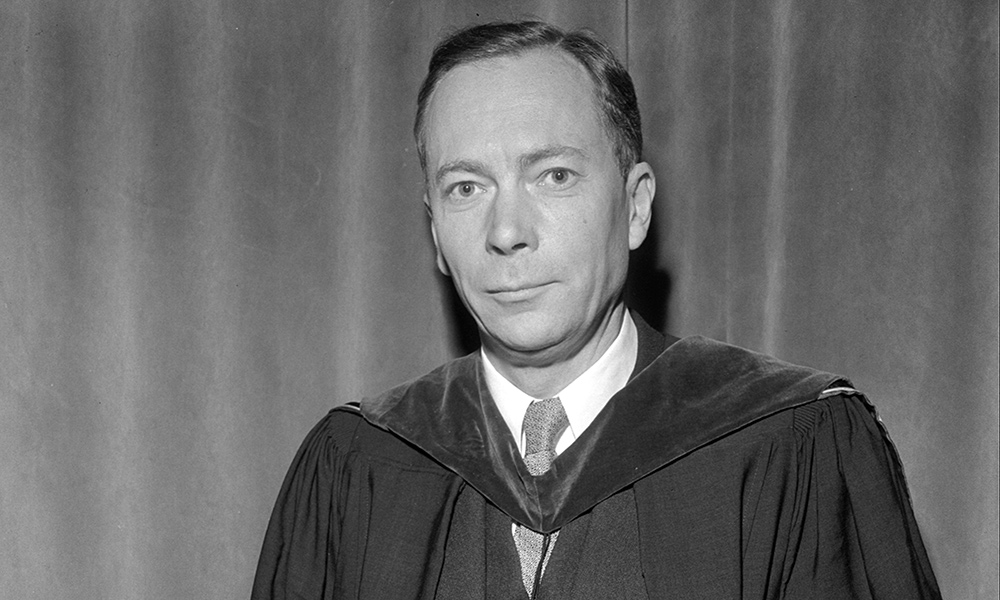 A member of the faculty in the 1940s, Henrik Dam was a corecipient of the 1944 Nobel Prize for work on vitamin K. (AP Photo)
A member of the faculty in the 1940s, Henrik Dam was a corecipient of the 1944 Nobel Prize for work on vitamin K. (AP Photo)
1934 Nobel Prize in Physiology or Medicine
George Whipple, founding dean of School of Medicine and Dentistry for his work to develop a therapy for anemia.
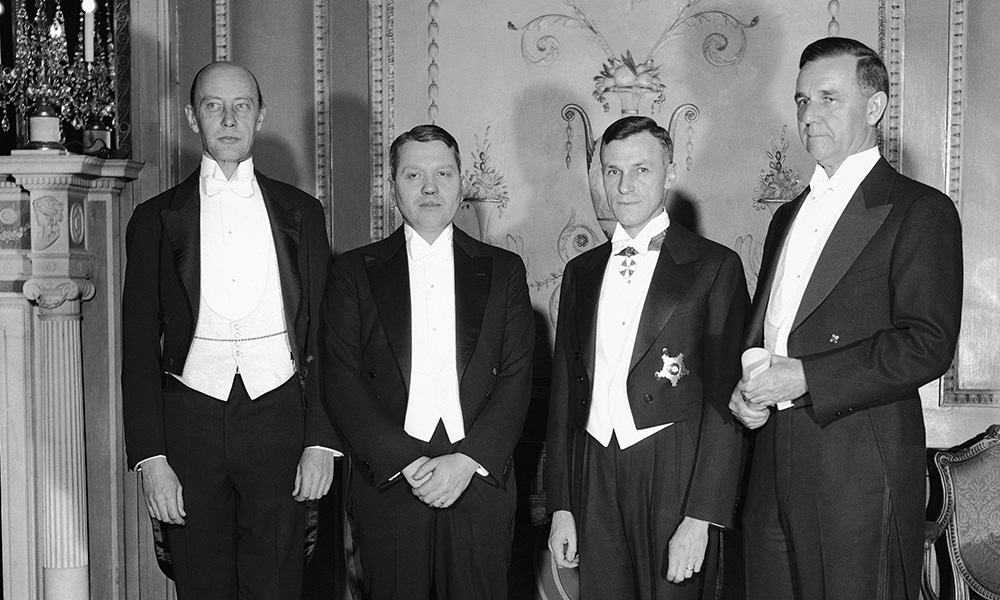 In an April 1935 photo, George Whipple (far right) is joined by other 1934 laureates H.C. Urey (chemistry) and George Minot and William Murphy, who shared the prize in medicine or physiology with Whipple. (AP Photo)
In an April 1935 photo, George Whipple (far right) is joined by other 1934 laureates H.C. Urey (chemistry) and George Minot and William Murphy, who shared the prize in medicine or physiology with Whipple. (AP Photo)

